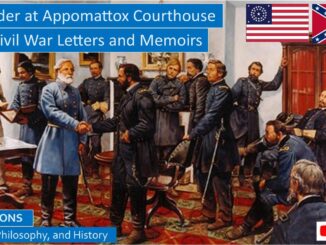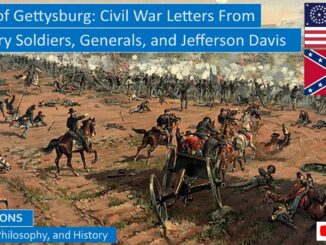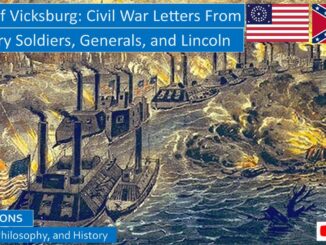
Surrender at Appomattox Courthouse, Ending the American Civil War
Robert E Lee ceremoniously offered his sword, but Grant refused it. Grant wrote out the terms, which paroled the Confederates on the condition that they “would not take arms against the Government of the United States.” “The arms, artillery and public property are to be parked and stacked.” “This will not embrace the side-arms of the officers, nor their private horses or baggage. This done, each officer and man will be allowed to return to their homes, not to be disturbed by the United States authority as long as they observe their paroles and the laws in force where they may reside.”
Grant recalls that when General Lee “read over that part of the terms about side arms, horses, and private property of the officers, he remarked, with some feeling, I thought, that this would have a happy effect upon his army.” […]


